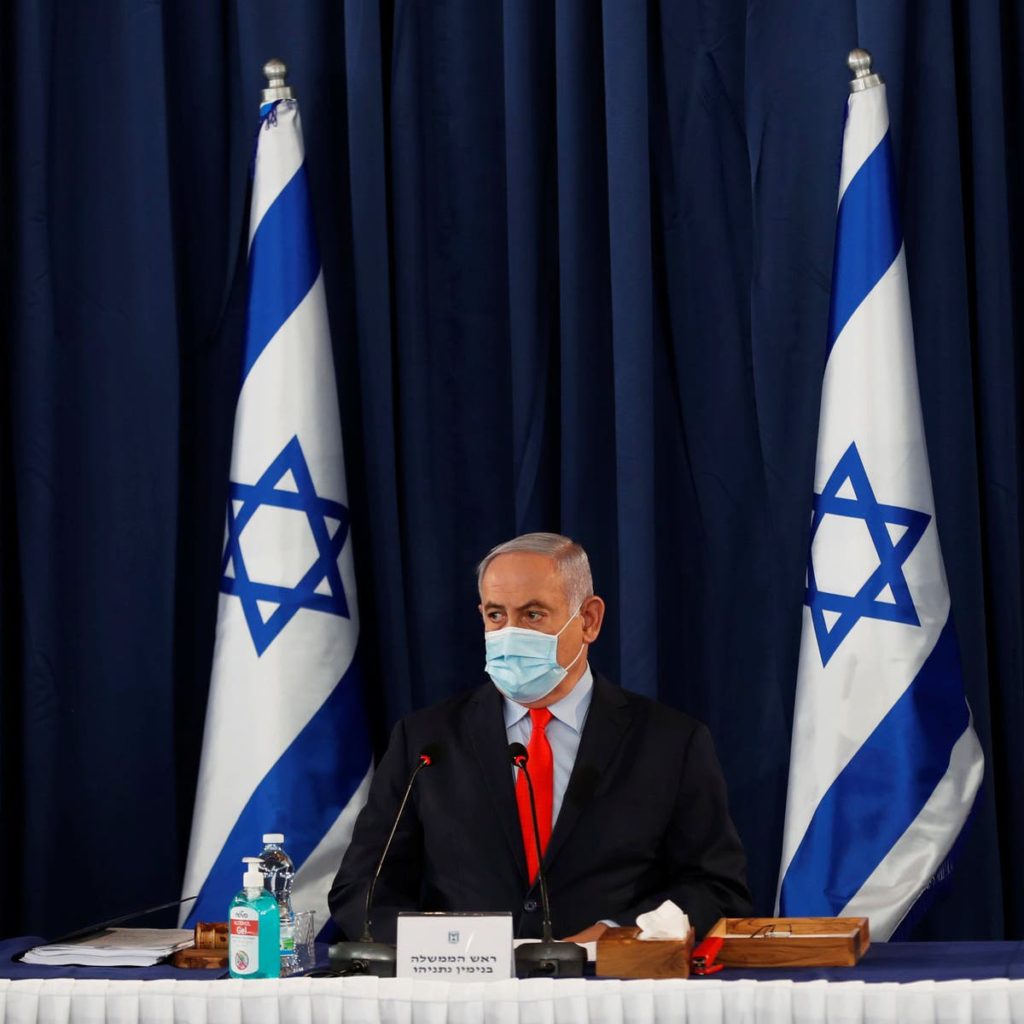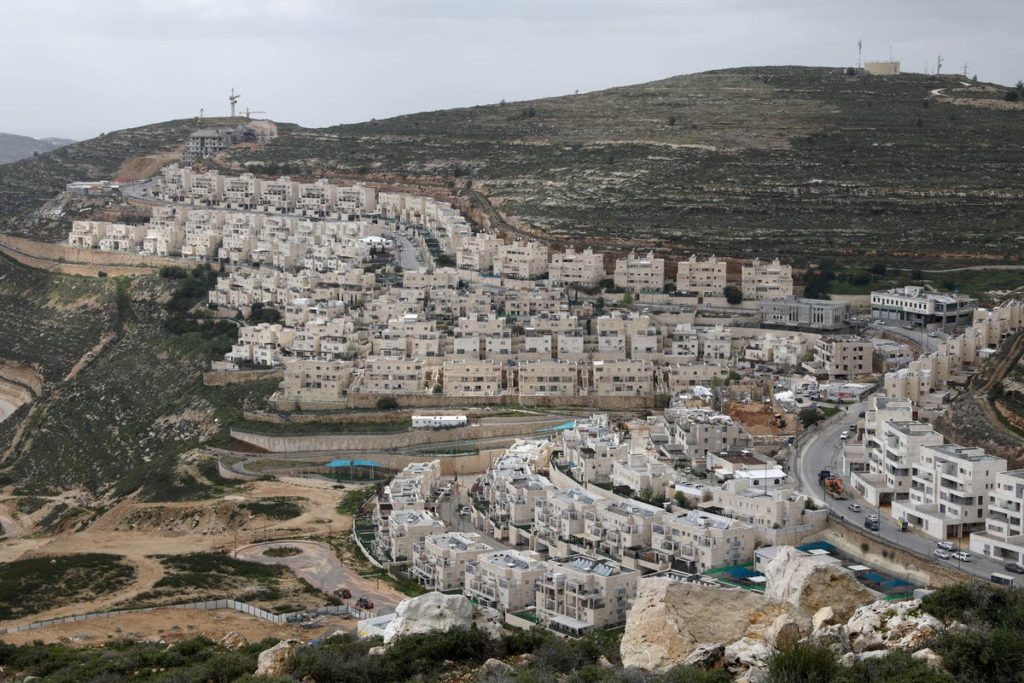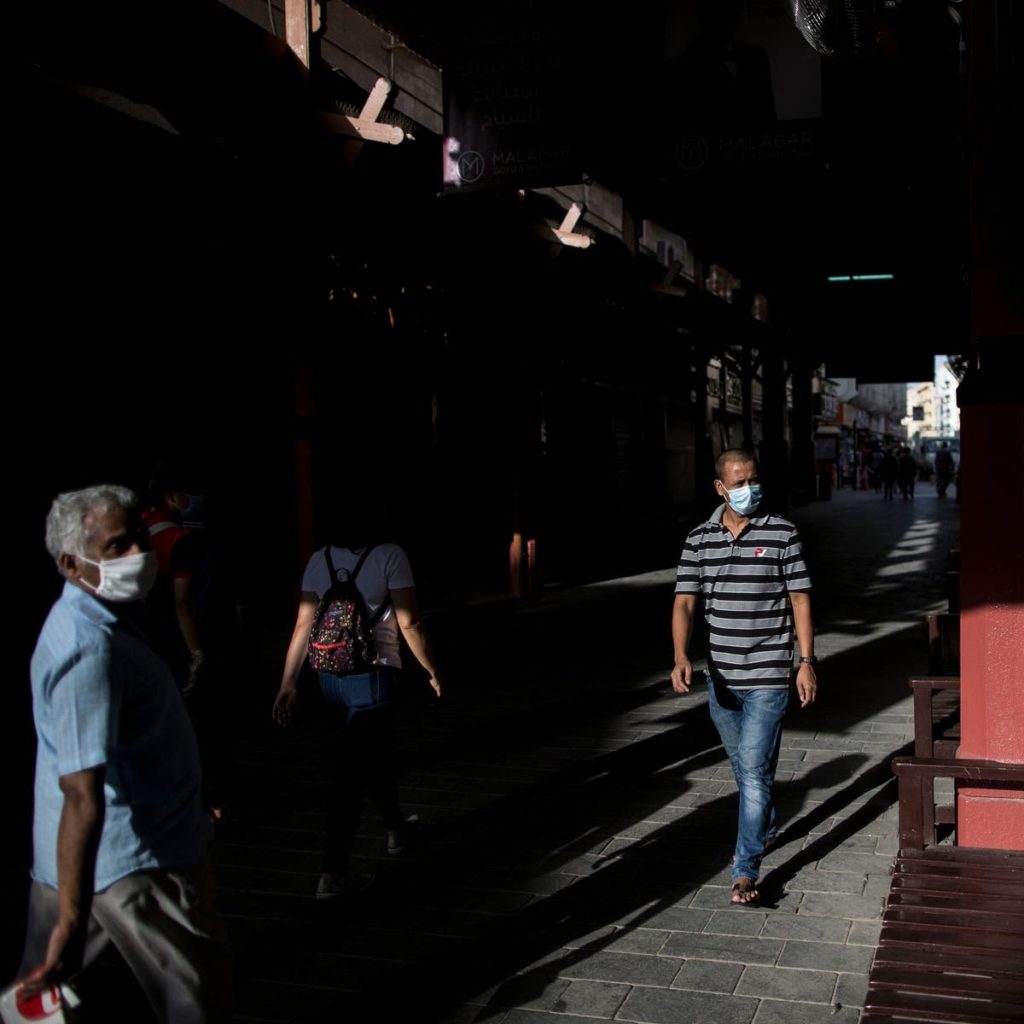Prime Minister Benjamin Netanyahu touted a rare public opening between the two countries. Apparently, the Emirates was not ready for it.
TEL AVIV, Israel — Prime Minister Benjamin Netanyahu of Israel announced a new partnership with the United Arab Emirates on Thursday to cooperate in the fight against the coronavirus, portraying it as the latest advance in the Jewish state’s efforts to build stronger ties with Arab states.
But Mr. Netanyahu’s ebullient description was contradicted a few hours later when the Emirates issued a much more muted statement, announcing what it described as an agreement between two private Emirati companies and two Israeli companies to develop technology to fight the virus.
The Emirati statement took the wind out of what Mr. Netanyahu had touted as a diplomatic coup, suggesting that despite the deepening ties, the two countries were still at odds over Mr. Netanyahu’s vow to annex parts of the occupied West Bank.
Addressing graduates at an air force base near Tel Aviv, Mr. Netanyahu spoke in grand terms of what he described as a new partnership that could benefit the broader Middle East.
“Our ability to work against the corona pandemic can also serve the entire region,” he said. “It creates opportunities for us for open cooperation that we have not known so far with certain countries.”
The partnership would include cooperation in research and development between the Israeli and Emirati health ministries in medical projects related to the coronavirus, he said.
To seal the deal, he said, the two ministries would announce the agreement “in a few moments.”

Commuters in Netanya, Israel, this week. Prime Minister Benjamin Netanyahu of Israel portrayed a new partnership with the United Arab Emirates as the latest advance in the Jewish state’s efforts to build stronger ties with Arab states.Credit…Jack Guez/Agence France-Presse — Getty Images
But it was unclear why the Emirates would agree to take such a public step at a time when Israel was drawing up plans to annex parts of the West Bank, a move that Arab countries, including the Emirates, have repeatedly denounced.
And four hours later, as Israeli officials stewed, the answer came in a Twitter posting from an Emirati Foreign Ministry spokeswoman.
“In light of strengthening international cooperation in the fields of research, development & technology in service of humanity, two private companies in U.A.E. sign an agreement with two companies in Israel to develop research technology to fight Covid-19,” wrote Hend al-Otaiba, the spokeswoman.
There was no mention of a state-to-state partnership between the two countries, which do not have diplomatic relations but whose ties have improved in recent years, and nothing about their health ministries.
It was unclear on Thursday whether the two countries had privately reached an agreement that came apart as it was coming to light, or what caused the daylight between the two announcements. But it seemed that Mr. Netanyahu’s annexation plans had made Emirati officials uncomfortable with such a public step toward Israel.
Barbara A. Leaf, a former United States ambassador to the Emirates and a fellow at the Washington Institute for Near East Policy, said it appeared that Mr. Netanyahu’s statement had pushed the Emirates into making a statement it was not ready to make.
If stronger state-to-state contacts were in the works, it was clear that the Emirates did not want to make them public.
“They are not on the same page at a point in time when the Israeli government is openly discussing not whether but how much of the West Bank to annex,” Ms. Leaf said.
Mr. Netanyahu has vowed to annex up to 30 percent of the West Bank as soon as July 1, a move that much of the world views as a violation of international law and a new barrier to the establishment of a future Palestinian state.

Arab countries, including the Emirates, have said that annexing parts of the West Bank, like the Israeli settlement of Ramat Givat Zeev, would thwart improved relationships with Israel.Credit…Ammar Awad/Reuters
Just two weeks ago, the Emirates’ ambassador to the United States, Yousef al-Otaiba, wrote a landmark article in a leading Israeli newspaper warning Israelis directly that “annexation will definitely, and immediately, reverse all of the Israeli aspirations for improved security, economic and cultural ties with the Arab world and the United Arab Emirates.”
“It’s Either Annexation or Normalization,” the headline said.
Mr. al-Otaiba did not respond to a request for comment.
A public partnership with the Emirates would have been a political windfall for Mr. Netanyahu, who has sought to build ties with Arab countries without making progress on a peace accord with the Palestinians. While some Arab leaders reject the possibility of any ties with Israel, others have long considered an Israeli-Palestinian peace agreement a prerequisite for any warming of ties.
In recent years, Persian Gulf monarchies have shifted away from seeing Israel as the oppressor in its conflict with the Palestinians and instead view it as a valuable partner in trade, security and their rivalry with Iran.
Shimrit Meir, and Israeli analyst of the Arab world, said that the announcements on Thursday were still significant, despite the apparent miscues.
“Saying we have two private companies cooperating with Israeli companies on Covid: In the language of the Middle East, this is almost unheard-of,” she said.
Noting that the two countries had previously worked together secretly, she said, “I think the outing of this is both important and bold.”

The old market in Dubai, U.A.E., in April. Israel’s description of a partnership with the Emirates was broader than what the Emiratis later announced.Credit…Mahmoud Khaled/EPA, via Shutterstock
The two countries had collaborated covertly on combating the virus recently, when the Mossad, the Israeli intelligence service, quietly acquired some equipment Israel needed to fight the coronavirus from Gulf states, according to European news media reports.
While Israel remains deeply unpopular across much of the Arab world, the Palestinian cause has diminished in importance to the region as Arab states have turned inward to deal with economic crises, popular uprisings and the rise of terrorist groups such as the Islamic State.
Persian Gulf countries such as the Emirates and Saudi Arabia have come to see Iran as a primary threat to regional stability and recognized Israel as a potential partner in confronting it.
“The U.A.E. has changed its approach to relations with Israel only in light of the Iranian danger, which they also perceived as threatening to them,” said Eli Avidar, who ran an Israeli mission in Qatar in 1999-2001 is now a member of the Israeli parliament.
That led to a gradual ramping up of covert dealings with Israel among Gulf States on issues including security, technology, agriculture and most recently health.
PHOTO CAPTION & CREDIT: Prime Minister Benjamin Netanyahu of Israel. Ronen Zvulun/Reuters
The New York Times








